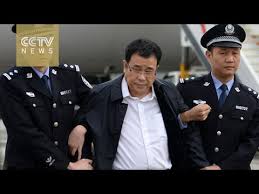US and China Expand Law Enforcement Cooperation
 Global anti-corruption efforts continue to increase. For global companies, this trend makes compliance even more critical.
Global anti-corruption efforts continue to increase. For global companies, this trend makes compliance even more critical.
One of the most significant aspects of this trend is the US government’s cooperation with China. The United States does not have an extradition agreement or a law enforcement cooperation treaty with China.
Prior to China President Xi’s recent visit to the United States, the US government turned over several fugitives to China. Yang Jinjun, who is on an Interpol “Red Notice” was returned from China, after residing in the US for 14 years. Almost a week later, Kuang Wanfang, a fugitive from China for 14 years, was returned to China.
Kuang Wanfang was convicted in the United States for embezzlement and money laundering of $485 million involving casinos, relating to theft of money from Chinese state-owned Bank of China. She was sentenced to eight years imprisonment. According to Chinese authorities, Kuang Wanfang will be prosecuted for corruption and bribery in China.
In addition to these two individuals, the US returned eight people to China because of their criminal histories. China has been tracking fugitives for financial and corruption-related crimes.
Prior to this level of cooperation, the United States and China had begun to share law enforcement information. The return of these fugitives is a significant step in the establishment of a formal cooperation relationship.
During President Xi’s visit, the US and China agreed to cooperate on criminal investigations and enforcement of asset recovery orders. China is considering joining the OECD Working Group on Bribery.
The potential coordination and cooperation between China and US law enforcement could have a significant impact on anti-corruption investigations and prosecutions. In many cases, the ability of the Justice Department to obtain evidence depends on outside counsel’s ability to collect, review, and report to federal prosecutors the information in China. Bringing the evidence from China to the US is difficult because of China’s privacy and information sharing restrictions.
As the law enforcement relationship between China and the US grows, the risks of a US government-initiated investigation increases, especially in those cases being investigated by China’s anti-corruption investigators. If Chinese law enforcement agencies are able to provide information to US law enforcement, global companies can face serious complications.
Global companies have developed an attitude that Chinese operations are somehow “separate” or “distinct” from other company operations. China is believed to be a world unto itself because of the lack of coordination and international relationships with law enforcement agencies in the US and other western countries. As the “wall” between China and the US  falls, US law enforcement agencies will gain access to potentially valuable Chinese information.
falls, US law enforcement agencies will gain access to potentially valuable Chinese information.
Global companies have to redouble their compliance efforts in China, not just because of China’s reputation for corrupt activities, but now because of potential increased information sharing.
Given the slowdown of the Chinese economy, Chief Compliance Officers may have a hard time convincing senior executives to make China a compliance priority but given all the recent developments, starting with the GSK case and with the growing US-China cooperation, CCOs have to convince company management that additional action and resources are needed.















